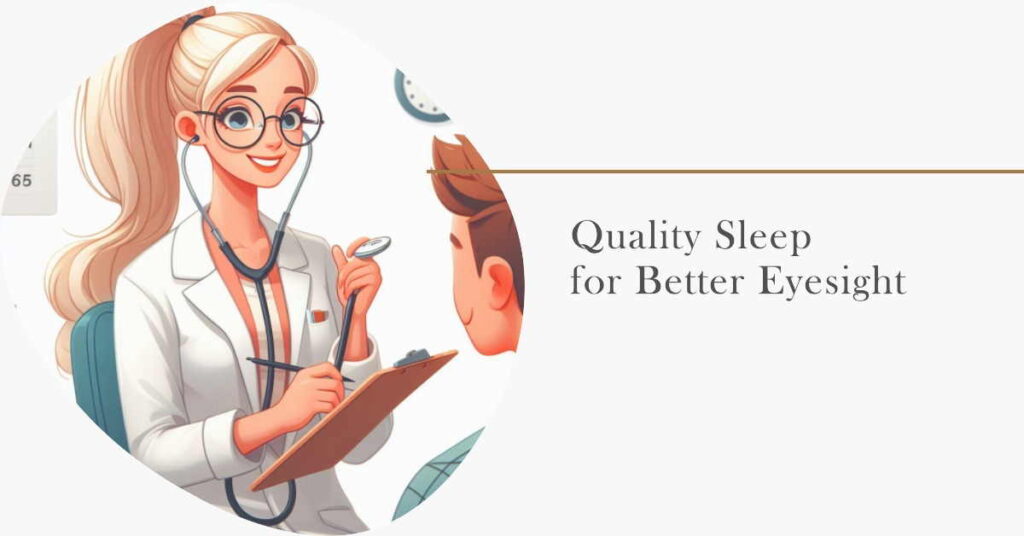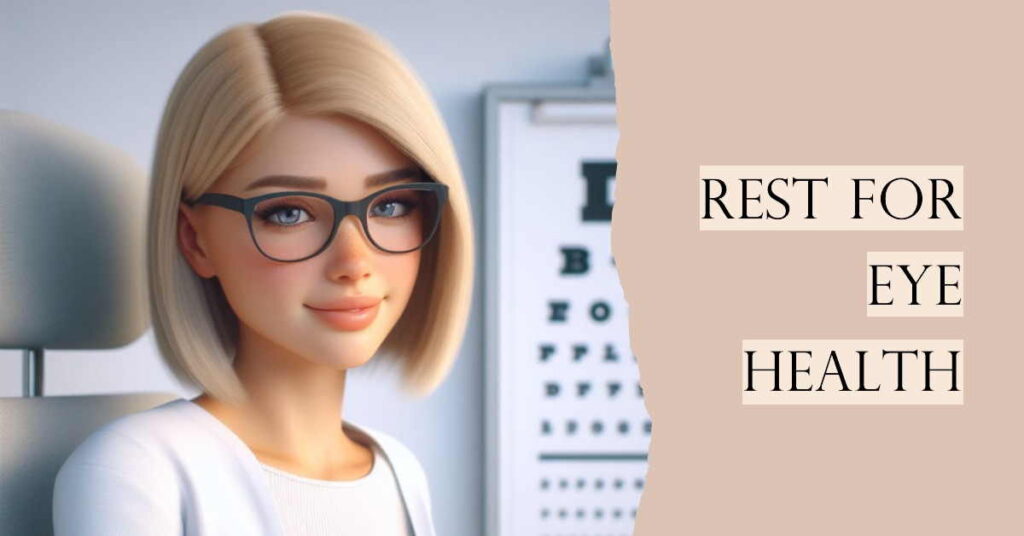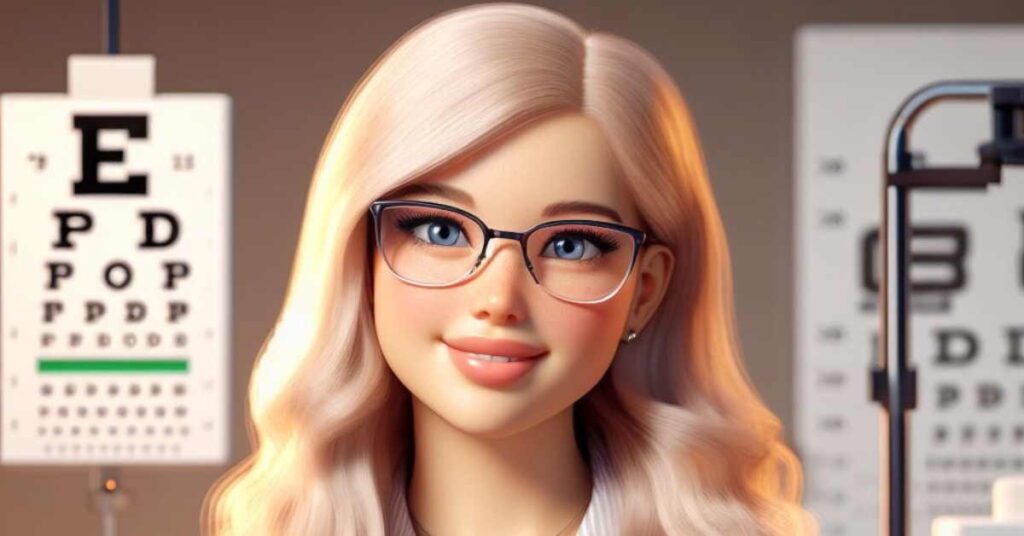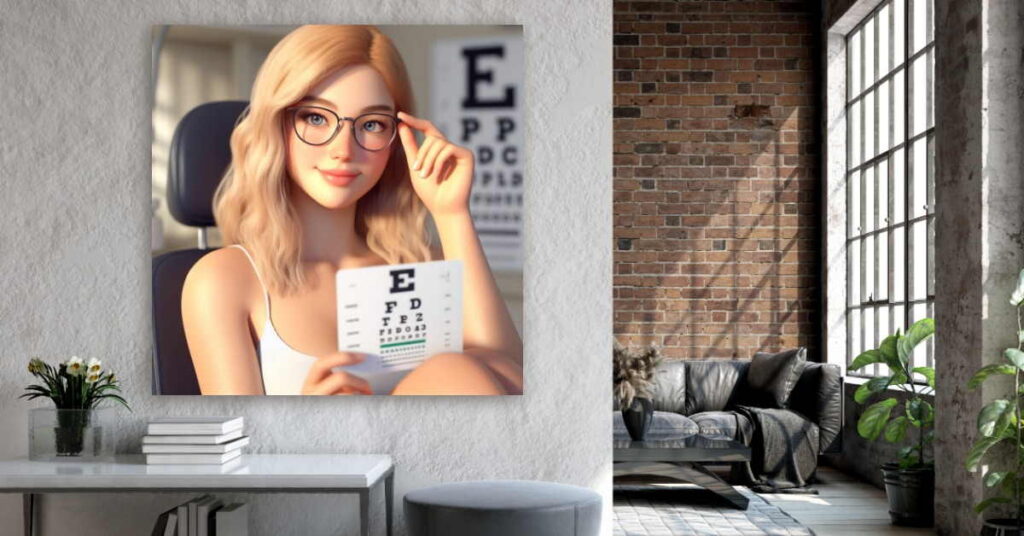The Importance of Adequate Sleep for Better Eyesight: Best Tips for Natural Vision Improvement. Good eyesight is a precious gift, and taking care of your eyes should be a top priority in your overall health regimen. While factors like genetics and age play a role in eye health, the significance of adequate sleep in maintaining and improving eyesight should not be underestimated. In this article, we will explore the connection between sleep and eyesight and provide 20 practical tips to naturally enhance your vision through better sleep habits.

1. The Link Between Sleep and Eye Health
Adequate sleep is essential for overall health, and this includes maintaining good eyesight. During sleep, your eyes rest and repair themselves. Insufficient or poor-quality sleep can lead to various eye problems, including dry eyes, blurred vision, and even more serious conditions like glaucoma.
2. Understanding the Sleep Cycle
The sleep cycle consists of different stages, including REM (rapid eye movement) sleep, where most dreaming occurs. During these stages, the eyes are actively moving and resting, promoting optimal eye health.
3. Importance of Melatonin
Melatonin, the hormone that regulates sleep-wake cycles, also has antioxidant properties that protect the eyes from oxidative stress. Quality sleep ensures proper melatonin production, enhancing eye health.
4. Tips for Better Sleep
Improving your sleep quality can significantly impact your eyesight. Maintain a regular sleep schedule, create a comfortable sleep environment, limit screen time before bed, and avoid caffeine and heavy meals close to bedtime.

5. Eye Exercises To Enhance Sight
Engage in regular eye exercises to strengthen eye muscles. These exercises can alleviate strain and improve focus, contributing to better eyesight naturally.
Unlock Your Vision Potential with the Eyesight Academy Course! 🌟
Are you tired of squinting at the world? Do you dream of sharper, clearer, and healthier vision? Look no further! Introducing the Eyesight Academy Course, your ultimate guide to achieving optimal vision naturally and effectively.
👁️ What You’ll Gain: Say goodbye to blurred vision and hello to a world of sharp clarity. Natural Techniques: Discover proven methods and exercises to enhance your eyesight naturally. Personalized Strategies: Receive tailored techniques catering to your specific vision needs. Lifestyle Enhancements: Transform your habits for healthier eyes, from sleep patterns to nutrition.
🎓 Course Highlights:
🔍 Understanding Vision: Grasp the fundamentals of eye anatomy and the science behind vision improvement. 🌿 Holistic Eye Care: Explore natural remedies, nutrition, and lifestyle adjustments for optimal eye health. 🧘 Eye Yoga and Relaxation: Master eye yoga exercises and relaxation techniques for stress-free eyes. 👓 Digital Eye Strain Relief: Combat screen-induced strain with practical tips and digital detox strategies. 🚀 Progress Tracking: Monitor your improvement journey with personalized progress-tracking tools.
💥 Limited Time Only!
🚀 Don’t Miss This Opportunity! Transform Your Vision, Transform Your Life!
Ready to see the world in a new light? Secure your spot at Eyesight Academy Course today and embark on a journey to sharper, brighter, and healthier eyesight!
👁️ Enroll Now and Embrace the Visionary in You! 👁️
6. Proper Nutrition
A balanced diet rich in vitamins A, C, and E, as well as minerals like zinc, supports eye health. Include leafy greens, colorful fruits, and omega-3 fatty acids in your diet to promote optimal vision.
7. Manage Stress
Chronic stress can lead to eye problems like glaucoma and exacerbate existing conditions. Practice relaxation techniques such as meditation or yoga to manage stress and protect your eyes.
8. Maintain a Healthy Weight
Obesity is linked to an increased risk of developing diabetes and other conditions that can harm your eyesight. Maintaining a healthy weight is not just about aesthetics; it is a fundamental pillar of overall well-being. Achieving and sustaining an appropriate weight for your body type is closely linked to reduced risks of various chronic conditions, including heart disease, diabetes, and certain cancers. A balanced weight also plays a crucial role in promoting optimal mental health, enhancing self-esteem, and boosting energy levels. It is achieved through a combination of regular physical activity and a nutritious, portion-controlled diet.
By embracing a lifestyle that includes regular exercise and mindful eating habits, you not only manage your weight effectively but also pave the way for a longer, healthier life. Remember, the journey to maintaining a healthy weight is not just a temporary endeavor but a lifelong commitment to your overall health and vitality.
9. Adequate Sleep and Myopia
Research suggests that insufficient sleep might be linked to the progression of myopia (nearsightedness) in children. Encouraging healthy sleep patterns in children can help prevent myopia from worsening.

10. Role of Sleep in Eye Pressure Regulation
Proper sleep is essential for regulating intraocular pressure. Elevated eye pressure is a risk factor for glaucoma. Sleep plays a pivotal role in regulating eye pressure, a vital factor in maintaining good eye health. During deep sleep, the body undergoes essential repair and regeneration processes, including the eyes.
For instance, the eye’s drainage system, known as the trabecular meshwork, functions optimally during rest, allowing the aqueous humor (the fluid inside the eye) to circulate properly. This natural flushing mechanism helps in regulating intraocular pressure (IOP), which, if elevated, can lead to conditions like glaucoma. Adequate sleep ensures that this pressure regulation process occurs efficiently, preventing unnecessary strain on the optic nerve and reducing the risk of glaucoma-related complications. Consistent, quality sleep not only rejuvenates the body but also safeguards the eyes, ensuring they remain in optimal condition for years to come.
11. Sleep Apnea and Eye Health
Sleep apnea, a condition characterized by interrupted breathing during sleep, can lead to optic nerve damage and other eye issues. Treating sleep apnea can improve overall eye health.
12. Herbal Teas for Better Sleep
Herbal teas like chamomile and valerian root have calming effects, promoting better sleep. Enjoying a cup before bedtime can enhance sleep quality, benefiting your eyesight.
13. Consult a Specialist
If you experience persistent vision problems or sleep disturbances, consult an eye specialist or a sleep medicine physician. They can provide tailored guidance and treatments to address your specific concerns.
14. Through the Sleep Lens: How Adequate Rest Improves Your Eyesight
A comprehensive understanding of the role sleep plays in eye pressure regulation unveils the intricate mechanisms that underscore the importance of a good night’s rest in maintaining optimal eye health. During the various stages of sleep, particularly the deep, non-REM (rapid eye movement) cycles, the body undergoes systemic repair processes.
Within the eyes, this repair work is essential for the proper functioning of the trabecular meshwork, a delicate tissue responsible for regulating the flow of aqueous humor, the transparent liquid that occupies the anterior portion of the eye. During sleep, this meshwork functions at its peak, allowing the aqueous humor to circulate efficiently, maintaining a healthy intraocular pressure (IOP).

15. How Proper Sleep Nurtures Healthy Eyes
Furthermore, consistent and restorative sleep is crucial for ocular nerve health. Elevated eye pressure, a key risk factor for glaucoma, can lead to optic nerve damage and irreversible vision loss if left uncontrolled.
Quality sleep ensures that the optic nerve, responsible for transmitting visual information from the eye to the brain, is not subjected to unnecessary stress. It also promotes the balance of essential neurotransmitters and hormones, such as melatonin, which have antioxidant properties, safeguarding the optic nerve and retinal cells from oxidative stress.
The Essential Connection Between Sleep and Eyesight
Moreover, chronic sleep disturbances, like those experienced in conditions such as sleep apnea, can disrupt the delicate balance of pressure regulation within the eyes. Sleep apnea, characterized by intermittent breathing pauses during sleep, can lead to changes in IOP, potentially causing optic nerve damage. By addressing sleep disorders and ensuring sufficient, uninterrupted sleep, individuals can significantly mitigate the risk of ocular complications, supporting the overall health and longevity of their eyesight. Thus, the relationship between quality sleep and eye pressure regulation is a multifaceted and indispensable aspect of ocular wellness, emphasizing the profound impact of restorative sleep on the preservation of clear, healthy vision.
Improving Eyesight Naturally Through Sleep Conclusion
Prioritizing adequate sleep is not just crucial for your overall well-being but also plays a vital role in maintaining and improving your eyesight naturally. By following these 20 tips and making positive lifestyle changes, you can contribute to the longevity and clarity of your vision, allowing you to enjoy the world with healthy eyes for years to come. Remember, your eyes deserve the best care, so start prioritizing quality sleep today for better eyesight tomorrow.

